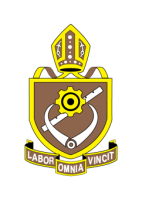| Language Policy |
Chinese is the medium of instruction for S.1 to S.6. To improve the students’ proficiency in English, while upholding mother-tongue teaching and enhancing proficiency in Chinese and English, our plan is to increase the total lesson time for conducting extended learning activities in English in S.1 to S.3. The non-language subjects such as Mathematics, Integrated Science, Life & Society, Geography, Technology & Living, Business Fundamentals and Music are taught mainly in the medium of Chinese, while certain topics and concept words are taught in English. Also, English is used for revision on topics previously covered in Chinese and for the teaching of Mathematics in the elite classes in S.1 to S.6. Exam and test papers will partly be set in English for assessments. |
| Learning and Teaching Strategies |
Students are trained to enhance their analytical thinking, self-learning abilities and generic skills. To cope with the development of e-learning, the "Bring-Your-Own-Device"(BYOD) scheme is implemented in S.1 and S.4. All classrooms are equipped with a computer, an interactive whiteboard, a visualizer and a projector. The school has two advanced Learning Centres, an English Centre and a self-learning centre. Moreover, our school has set up an "Outdoor Learning Centre" in Ha Pak Nai in order to enhance the learning experiences of students. Our curriculum structure keeps pace with the students' abilities and the needs in society. A talents enhancement programme is set up in senior forms. It aims to boost students' performance by providing them learning strategies, advice on their studies, English enhancement courses, school preparation guidance and psychological quality counseling. |
| School-based curriculum |
1. Electives: 2X. Elective Subjects: Bio, Phy, BAFS, THS, C.H., Chem, Econ, Geog, V.A., T&L, ICT.<br> 2. Curriculum highlights: Our S.1 to S.3 English and Chinese curriculum is tailor-made to cater for the needs of our students. Diversity Learning Grant is provided by EDB to run Enhancement Programmes for elite students in senior forms outside school hours. Intensive Remedial Programmes are implemented for junior form students to cater learner diversity.<br>3. For junior forms, we offer diverse academic subjects, such as Life & Society, Creativity & Media, Computer Literacy, Business Fundamentals, Technology and Living as well as an informal curriculum, such as reading across the curriculum programmes, growth programmes, cultural activities and STEAM activities. Chinese and English Morning Reading Sessions are held for the whole school. Student Ambassadors are appointed to promote reading. Chinese and English Reading Awards are given to outstanding readers. Opportunities are also provided for students to share their reading. Talks by writers, book exhibitions and Book Borrowing Competition are organized. Participation in reading competitions organized by outside organizations is highly encouraged. <br>4. S.1 and S.4 Service Learning Programmes serve to develop students' sense of empathy and commitment to continually grow as a servant leader. |
| Approach to Catering for Learner Diversity |
Assignments and assessments are of different levels of difficulty, with review of student's academic results and learning attitudes. Whenever necessary, collaborative follow-up actions would be taken. Educational Psychologist and School Social Worker would help students with special needs. Teachers received training continuously to help SEN students. |
| Approach to Integrated Education |
To cater for students’ special learning needs, we have the Learning Support Grant from the Education Bureau to carry out the following projects:<br>1. Apart from the school-based speech therapist, we recruit a resource teacher, supportive instructors and part-time tutors for organizing Individual Education Plan (IEP) and exam adaptation. Assessment and regular training will be provided for students with special needs.<br>2. We are cooperating with different organizations to carry out work groups. This will let students understand their own characters, realize and comprehend different ways of career planning and build up a preliminary idea for their future.<br>3. A school-based learning group called “Language World” will be set up for S.1 and S.2 students. This will support students’ learning needs. |
| Education Support for Non-Chinese Speaking (NCS) Students |
|
| Home-School Co-operation |
The Parent-Teacher Association and the Home School Cooperation Committee promote cooperation between parents and teachers. School newsletters are published. Activities are organized to cultivate a harmonious relationship among teachers and parents. |
| School Ethos |
The discipline and guidance teams work together to foster caring and good school ethos. School social workers, Education Psychologist and Speech Therapist would provide guidance. Various awards are provided to commend outstanding performances. S.2 to S.6 classes are taken care by two form teachers. Three form teachers are allocated to each S.1 class. Lunch-at-school arrangement and after-school "GROWTH" class are provided for S.1 students to enhance care. |
| School Development Plan |
To promote a learning culture to enhance students' learning effectiveness: <br>Our school places great importance on cultivating students' study habits, aiming to improve the foundational skills of junior form students and equip senior form students for active preparation for the Hong Kong Diploma of Secondary Education Examination (HKDSE). <br><br>To flourish student wellbeing through positive education and values education:<br>Our school is committed to creating a positive and joyful campus atmosphere, cultivating students a sense of belonging to their school, embodying resilience and a sense of responsibility, and grooming them to become future leaders. |
| Teacher Professional Training and Development |
School Professional Development Days, which cover areas such as spiritual nurturing, teaching and learning and, student support and growth, are held every year. Teachers fulfill a designated number of training hours each year. Teachers of different disciplines regularly co-plan their lessons, share experiences and observe classroom teaching for professional development. |
| Life-wide Learning |
Student Union, 4 Houses, Class Association, School Teams, Christian Fellowship, 13 Clubs including those related to academic subjects, Sports, Art, Interests, and Service Groups; 17 training courses on artistic skills; leadership training courses and programs jointly organized by professional organizations. |
